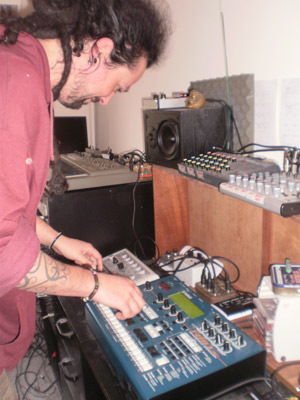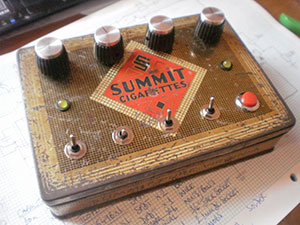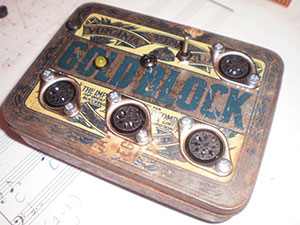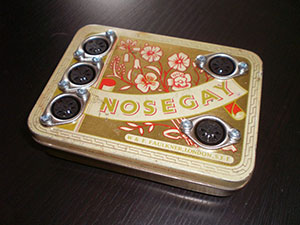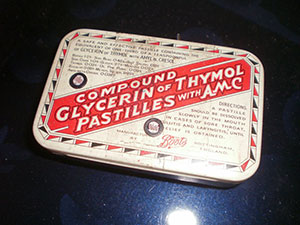Most people are too young to remember those old evocatively decorated tins that used to hold tobacco, foodstuffs and other consumer goods, as they were at their peak in the first half of the 20th century. However, in what must be one of the most original examples of repurposing, these vintage items are being used by a Rapid customer as enclosures for bespoke audio effects devices.
James Radford is a Swansea-based musician and producer who specialises in techno and acid house music, and under the name of Swarm Audio designs, builds and sells a wide range of products. These include distortion effects, studio solutions and sound modules such as sirens, oscillators, theremin modules, filters and ring modulators.
If your formative years were in the late 1980s or 1990s or you have ever been to a rave the sounds these devices make will be immediately recognisable to you! Low pass filters are common in electronic music, accentuating and giving dynamism to repetitive basslines by removing upper harmonics from the sound. Low frequency oscillators modulate aspects of the sound of synthesizers such as pitch, filters and pulse width, and help create the archetypal 'pulse' of acid house and techno music.
Ring modulators are best known as the effect used for the voice of the Daleks in 'Doctor Who', and have a wide range of audio applications. They are built in a traditional way using diodes and transformers, and work by feeding two signals through a ring of diodes which removes either positive or negative parts of the waves. Splitters are sequencing tools which allow more devices to be run off the same MIDI port, while theremins are fascinating things. There is no physical interaction between player and instrument, the eerie sounds being produced by an electronic signal sensing the position of the player's hands, with one determining the frequency and the other the amplitude.

